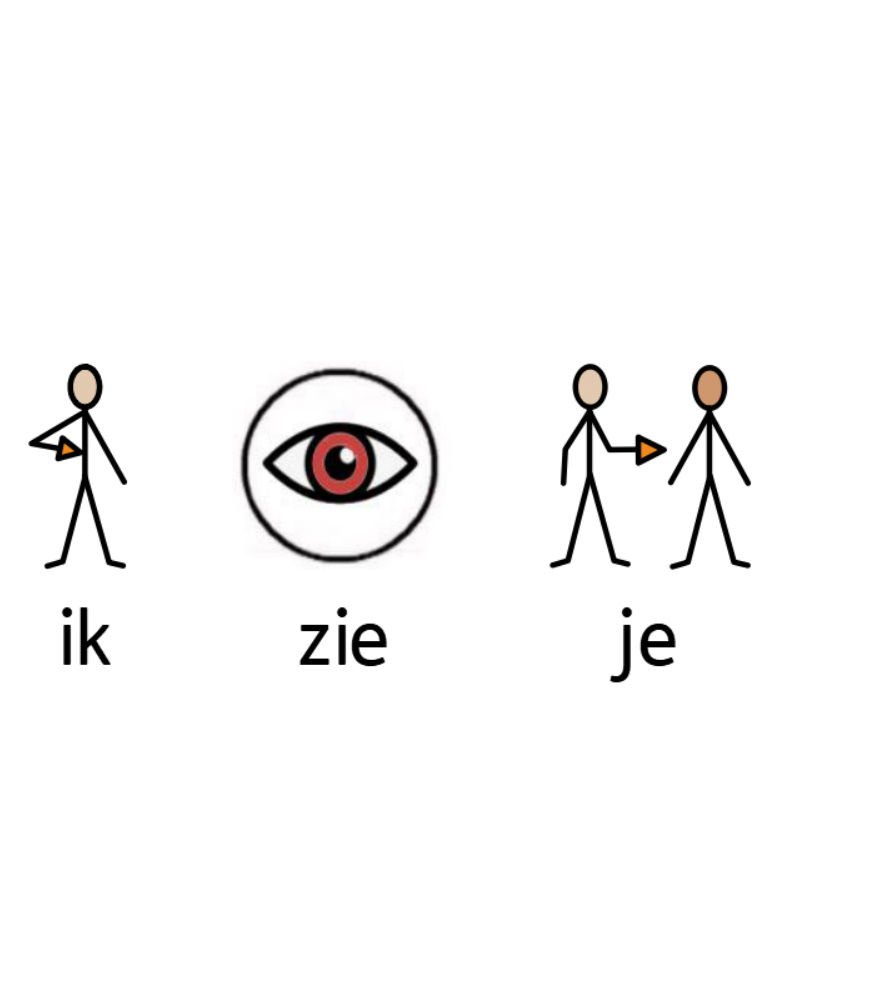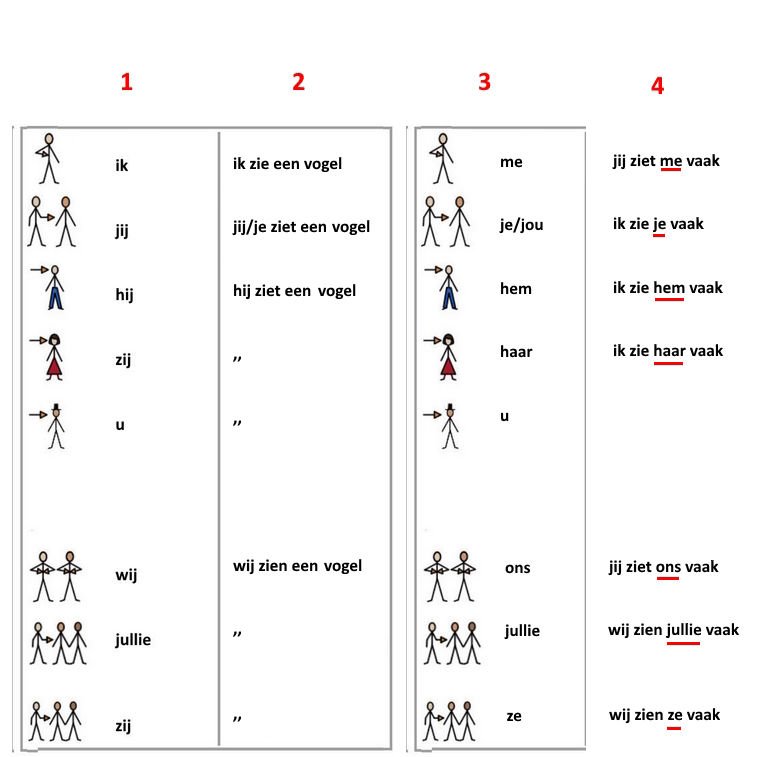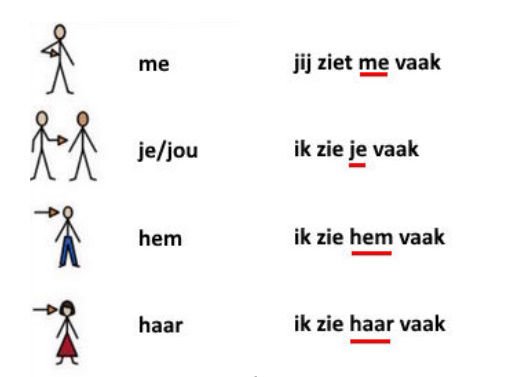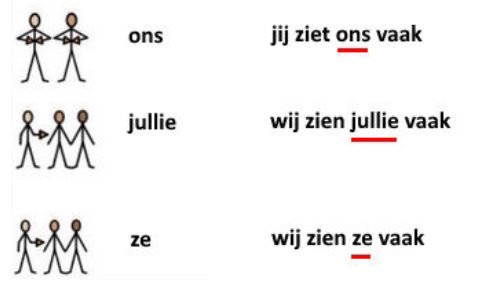
Object Pronouns
These pronouns are used when the pronoun is the object of the verb (the action is done to it, refers to it) or of a preposition. In English we use the name "object pronouns". For example, in the sentence "The teacher called me" is the object pronoun is "me" because the action of calling is being done to "me".
More examples:
I see you. (see picture)
I will meet you after school.
Can you help him with his homework?
I sent her an email.
This car belongs to us
They invited us to their wedding.
I have something for them.
<<<


